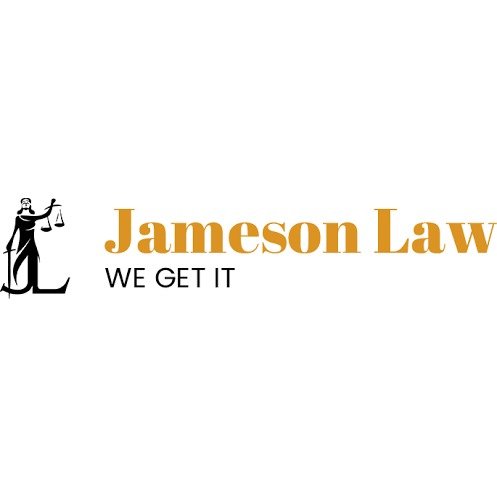Best Restructuring & Insolvency Lawyers in Parramatta
Share your needs with us, get contacted by law firms.
Free. Takes 2 min.
List of the best lawyers in Parramatta, Australia
About Restructuring & Insolvency Law in Parramatta, Australia
Restructuring and insolvency law deals with the processes and regulations surrounding the financial difficulties and potential insolvency of businesses and individuals. Located in Western Sydney, Parramatta is a thriving business hub with a diverse economic landscape. When businesses or individuals in Parramatta face financial distress, they may consider legal restructuring options to keep operations afloat or may have to enter into insolvency proceedings. Local businesses, from small enterprises to larger corporations, regularly engage with these laws to manage debts, restructure finances, or handle insolvency situations effectively.
The goal of restructuring is to allow businesses to survive, recover, or improve their financial health, while insolvency law provides mechanisms for fair and orderly winding up or repayment of debts when survival is not possible. Australian laws apply to Parramatta, but the legal framework also benefits from local expertise, support services, and community resources specific to the Parramatta region.
Why You May Need a Lawyer
Many people and businesses in Parramatta find themselves needing a restructuring and insolvency lawyer for various reasons. Here are some common scenarios:
- Experiencing cash flow problems or trouble meeting debt repayments
- Facing legal action initiated by creditors, such as statutory demands or bankruptcy proceedings
- Wish to restructure business operations, assets, or debts to avoid insolvency
- Dealing with voluntary administration, receivership, or liquidation processes
- Directors concerned about potential liability for insolvent trading
- Personal insolvency matters, including bankruptcy and arrangements with creditors
- Looking to understand your rights and obligations when a business partner or major supplier becomes insolvent
A restructuring and insolvency lawyer can provide guidance on your options, represent your interests in court or negotiations, ensure legal compliance, and help achieve outcomes that protect your future or the future of your business.
Local Laws Overview
Restructuring and insolvency law in Parramatta is primarily governed by federal legislation, but it is applied and enforced locally. The main legal frameworks are:
- Corporations Act 2001 (Cth): Governs corporate insolvency, including voluntary administration, liquidation, and receivership procedures.
- Bankruptcy Act 1966 (Cth): Covers personal insolvency processes, such as bankruptcy and personal insolvency agreements.
- Safe Harbour Provisions: These provisions in the Corporations Act offer some protection to company directors trying to restructure and avoid insolvency.
- Statutory Demands and Insolvent Trading Laws: Set out when creditors can force a company into liquidation and the responsibilities of directors.
- Australian Securities and Investments Commission (ASIC): The main enforcement body overseeing corporate conduct and insolvency processes.
In addition to federal law, Parramatta benefits from access to the Supreme Court of New South Wales and the Federal Court for certain types of insolvency litigation. Local courts can also hear matters for smaller insolvency cases. Business owners and individuals in Parramatta should also be aware of their tax obligations with the Australian Taxation Office (ATO), as tax debts are frequently involved in insolvency matters.
Frequently Asked Questions
What is the difference between restructuring and insolvency?
Restructuring refers to the process of reorganising a company’s finances, operations, or structure to improve its financial position, often to avoid insolvency. Insolvency is the state of being unable to pay debts when they fall due. Insolvency can lead to processes such as liquidation or bankruptcy.
How do I know if my business is insolvent?
A business is insolvent if it cannot pay its debts as they become due. Common signs include ongoing defaults on payments, inability to obtain finance, creditor pressure, overdue taxes, and bouncing cheques. A legal or financial adviser can help clarify your position.
What does voluntary administration mean?
Voluntary administration is an insolvency process where an independent administrator is appointed to take control of a company, assess its finances, and recommend the best outcome for creditors and the company. It is often used to try to save the business or get a better result for creditors than immediate liquidation.
What is the role of a liquidator?
A liquidator is a licensed professional who takes control of a company that is being wound up. They collect and sell company assets, investigate affairs, and distribute proceeds to creditors according to legal priorities.
Are directors personally liable for company debts?
Generally, directors are not personally liable for company debts. However, they may be held personally responsible for debts incurred while the company is trading insolvently, for unpaid employee entitlements, or if they breach specific legal duties.
What protections exist for directors during restructuring?
The safe harbour provisions in the Corporations Act protect directors from personal liability for insolvent trading if they are developing a course of action that is reasonably likely to lead to a better outcome for the company and its creditors than immediate liquidation.
How does personal bankruptcy work in Parramatta?
If an individual cannot pay their debts, they may voluntarily file for bankruptcy or can be made bankrupt by a creditor through a court process. Bankruptcy generally lasts for three years but may have lasting effects on credit ratings and asset ownership.
What is a Deed of Company Arrangement (DOCA)?
A DOCA is a binding arrangement between a company and its creditors detailing how the company’s affairs will be dealt with, usually allowing the business to continue trading and providing a better outcome for creditors than liquidation.
Can creditors take action during restructuring or insolvency?
Generally, creditors are prohibited from taking enforcement action once a company has entered voluntary administration or liquidation. There are limited exceptions, and creditors must typically follow formal processes.
How can a Parramatta lawyer help with restructuring or insolvency?
A lawyer can assess your financial situation, advise on the best legal strategy, represent you in negotiations or court, ensure compliance with legal obligations, and help reach more favourable outcomes in restructuring or insolvency proceedings.
Additional Resources
If you need information or help with restructuring and insolvency in Parramatta, the following organisations can be useful:
- Australian Securities and Investments Commission (ASIC): Information on insolvency for companies and directors.
- Australian Financial Security Authority (AFSA): Administers personal insolvency, including bankruptcy.
- New South Wales Law Society: Provides resources and can help you find qualified legal professionals in Parramatta.
- Australian Taxation Office (ATO): Offers guidance on tax debts and insolvency issues.
- Business Connect NSW: Offers advice and support services for small businesses facing financial difficulty in New South Wales, including Parramatta.
Next Steps
If you are facing financial difficulties as an individual or business in Parramatta, seeking timely legal advice is critical. Here is how to proceed:
- Assess your current financial situation and gather all relevant documentation about your debts, assets, and business operations.
- Contact a restructuring and insolvency lawyer or a firm with experience in Parramatta to arrange an initial consultation.
- Prepare a list of questions and be honest about your concerns so your lawyer can advise you on the best options.
- Follow your lawyer's recommendations and act quickly to protect your interests and avoid further complications.
- Make use of additional resources or professional services as needed, such as financial advisers, accountants, or business support organisations.
Legal issues surrounding restructuring and insolvency can be complicated, but with the right advice and support, you can navigate the process in the best way possible for your circumstances.
Lawzana helps you find the best lawyers and law firms in Parramatta through a curated and pre-screened list of qualified legal professionals. Our platform offers rankings and detailed profiles of attorneys and law firms, allowing you to compare based on practice areas, including Restructuring & Insolvency, experience, and client feedback.
Each profile includes a description of the firm's areas of practice, client reviews, team members and partners, year of establishment, spoken languages, office locations, contact information, social media presence, and any published articles or resources. Most firms on our platform speak English and are experienced in both local and international legal matters.
Get a quote from top-rated law firms in Parramatta, Australia — quickly, securely, and without unnecessary hassle.
Disclaimer:
The information provided on this page is for general informational purposes only and does not constitute legal advice. While we strive to ensure the accuracy and relevance of the content, legal information may change over time, and interpretations of the law can vary. You should always consult with a qualified legal professional for advice specific to your situation.
We disclaim all liability for actions taken or not taken based on the content of this page. If you believe any information is incorrect or outdated, please contact us, and we will review and update it where appropriate.










